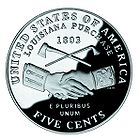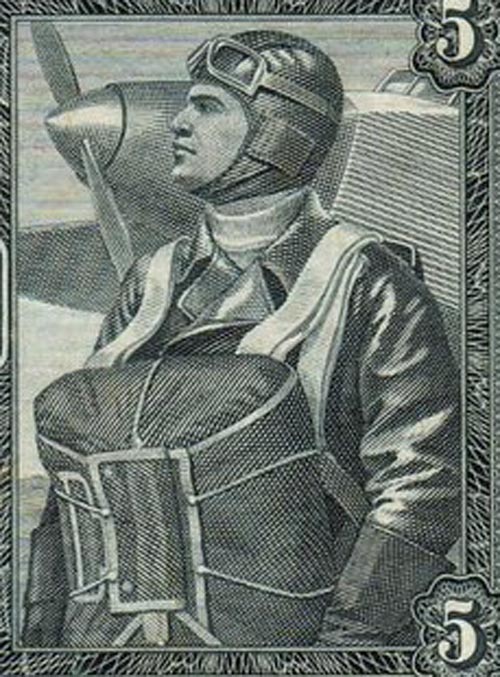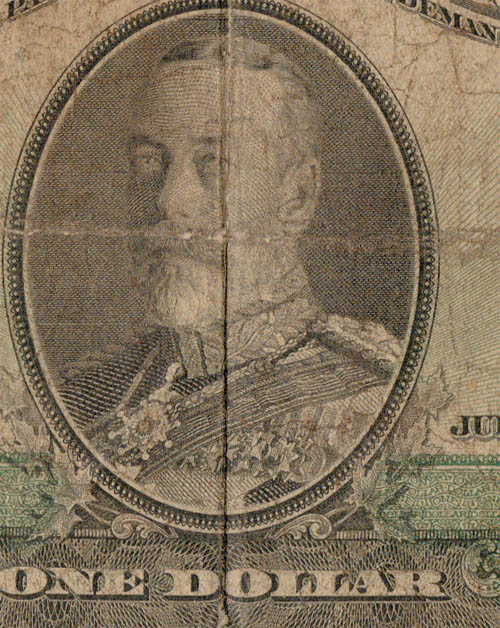Walked downtown for a break, wandered over to the coin store. I never buy coins. It’s useless money for me: the old paper stuff that has no value anymore, so it’s a matter of what he wants to charge and I want to pay.
“What does this useless stuff go for now?” I asked. He said it depended on how many I bought - pick ten, and they’re a buck-and-two-bits each. So I picked ten, and offered him ten. I mean, one was an old dollar bill. I’m not going to pay more than a dollar for a dollar. Sure, it was a silver certificate, but still. Those fascinated me as a kid - any sort of unusual money was alluring, like $2 bills, or changes to the coins. (The coins never changed, either. Not like these days. I was surprised to find the changes in the nickels and pennies, and the nickel’s been different for six years. Just not paying attention - or there are so many of the old ones in circulation. Or maybe I’m not alone; do you remember this?

I don’t.) The idea that you could exchange a bill for silver was a thrilling idea. My dad set them aside, as if they were somehow more potent than paper dollars, and I suppose they were: you could get metal that other people would accept as something of intrinsic value, because, well, someone could turn it into rings, I guess. Same with gold. So the entire economic system for humankind is based on whether it’ll look good hanging from a woman’s ears or fastened around her wrist? Yes, my son. That is the way of things.
Interesting facts: there could only be as many silver certificates in circulation as there were silver coins to back them up. Isn’t that a quaint notion? That changed in 1963, when JFK signed an executive order that said Oh Hell, just print ‘em, and thereafter there was no relationship between the number in circulation and the actual amount of silver the government had. And that’s why he was shot. Four years later, the government said “that thing we said before? Never mind” and stopped redeeming the certificates. Because they could! The sand, you can pound it.
The reason for them in the first place? Perhaps a sop to people peeved that silver had lost the Official Metal Standard War, when the Coinage Act of 18whenever put us on the gold standard, more or less. Googling . . . okay, 1873, although the official adaptation of the gold standard came in 1900. So the people who were cheesed in 1900 might have lived long enough to see FDR order everyone to turn in their gold in 1934. Because they could! The sand, et cetera. WE WARNED YOU ABOUT THAT GOLD. ‘TIS A FICKLE BITCH WHAT BRINGS MISERY TO ALL. Silver, that’s the ticket.
Lest you think that micromanaging the macro economy is a new twist, let’s take a look at the good ol’ Sherman Sillver Purchase:
The Sherman Silver Purchase Act was enacted on July 14, 1890[1] as a United States federal law. It was named after its author, Senator John Sherman, an Ohio Republican, chairman of the Senate Finance Committee. While not authorizing the free and unlimited coinage of silver that the Free Silver supporters wanted, it increased the amount of silver the government was required to purchase every month. The Sherman Silver Purchase Act had been passed in response to the growing complaints of farmers and miners interests. Farmers had immense debts that could not be paid off due to deflation caused by overproduction, and they urged the government to pass the Sherman Silver Purchase Act in order to boost the economy and cause inflation, allowing them to pay their debts with cheaper dollars. Mining companies, meanwhile, had extracted vast quantities of silver from western mines; the resulting oversupply drove down the price of their product, often to below the point where it was not profitable to mine it. They hoped to enlist the government to artificially increase the demand for silver.
I’ll spare you the rest, but I love this: in their infinite wisdom, the government paid for silver with notes that could be redeemed for silver or gold. Which do you think people chose? Then came the Panic of 1893, and the bailout of the government by J. P. Morgan.
Anyway. I offered him a ten for the ten. He took it, complaining about my hard bargains and deal-making skill.
“You know I’m paying ten times more than they’re worth already,” I said, “although obviously they’re worth ten dollars to me.”
“Oh, there’s a lot of valuable stuff in that bin,” he said. I knew he was full of nonsense and he knew I knew. We go through this once a year.
“You have Japanese occupation money in there that isn’t worth half a penny.”
“Do you see it blowing down the street?” he said, spreading his arms to indicate the big wide world where Japanese occupation money is not blowing down the street, thus indicating that its relative scarcity here and now conferred greater value. Which, of course, it did, but not a buck’s worth.
Doesn’t matter. I love this stuff. There will be about 40 more pages added to the Engraveyard next month, after it’s scanned. The entire site is being redesigned. Of course. Because I have a new design paradigm in my head that's infecting all the new or redesigned sites, and will be irritatingly archaic when I see them again in a few years.
Here’s a preview: A dollar from the Dominion of Canada, our beloved neighbor to the north:

That’s George V. Interesting note from wikipedia:
(The King's doctor) Dawson's private diary, unearthed after his death and made public in 1986, reveals that the King's last words, a mumbled "God damn you!",[76] were addressed to his nurse when she gave him a sedative on the night of 20 January. Dawson wrote that he had ended the King's life by giving him a lethal injection of cocaine and morphine. Dawson noted he acted to preserve the King's dignity, to prevent strain on the family and so that the King's death at 11:55 pm could be announced in the morning edition of The Times newspaper rather than "less appropriate ... evening journals".
That’s fascinating. Damned vulgar press will probably run a headline like “Georgie Snuffs It” or “Georgie Porgie, Pudding, Dies.” A man of his stature deserves to have the Times get first crack. Watson, the needle.
Cocaine and morphine? Hell of an exit.
1938 Soviet note:

Too bad the parachute bag was stuffed with rags. But they never knew that until they needed it.

So. Are you going to play the lottery? It’s a half-billion dollar prize, which is almost $400 mil if you take the cash payout, and $46,342 after taxes. The fun is dreaming what you’d do with the money, of course. The first thing I would do is disappear. Seriously. I mean, the day afterwards. Poof. Phone’s off the hook. Talk to a realtor; buy a big house on a nearby lake in town, and spend a month discussing either a rehab or a tear-down, then get on a ship for a few months. Hire a tutor to take care of the kid’s education to satisfy the state’s laws.
Then comes the fun part: figuring out how to give away 200 million. I’d endow a museum. I’m not sure what kind. I’d set up a foundation to fund writers and artists on the web. I’d throw a few million to a filmmaker friend. And here I think: just a few? Really? Am I that cheap? Why not ten? Why not fifteen? Think what he could do for fifteen. But wouldn’t it be better if he made three for five each? So I could give him five million in three installments, and if the thought ever entered his mind that he could do something really remarkable for fifteen, it would be a nanosecond of something that could, when examined, resemble something like resentment. What’s more, I know the thought has occurred to him. It would occur to anyone.
So one day he comes to me, Mr. Multimillionaire, and says “hey, you want to back my next movie?” and I stand up and deck him and say “you ungrateful son of a bitch.”
Meanwhile, there’s the problem of your friends. You celebrated with a party, and gave all your oldest and closest a million dollars, knowing they’re all sensible level-headed people whose highest goal in their lives is their children. Next year one of them shows up in a new car, and he’s thinking “I bought this with my own money, not the million, because that’s in trust, but he doesn’t know that. I’d tell him, but it makes me feel like I have to explain what I spend my own money on.”
That would poison the well, so you give your friends a million and a car. Or maybe this: you just pay off everyone’s mortgage and leave it at that. But then one of your friends gets into a jam. It’s been a rough few years. Needs some help. Thinks: I hate to ask, but he paid off A’s mortgage, and I know it was twice mine.
I actually don’t think that’s how my friends think, but it’s possible. This sort of money is toxic. How can you expect your friends to complain about a hard, crappy day at work, when you have $300 million, and could solve their problems with a stroke of a pen?
Is there any way out of this? Perhaps you pay off their mortgages, set up college funds, then build some annuities, buy a place in Arizona where everyone can go when they wish, with a slush fund for airplane tickets. THERE. IS THAT ENOUGH?
In other words, folks: don’t play the lottery.
Leave that to me. At least I’ve thought these things through.
BTW: the original image, before futzery. I could do better if I had more than five minutes, and it was my job.
